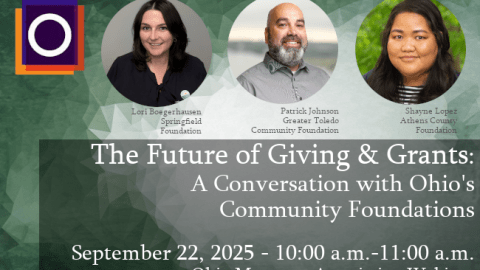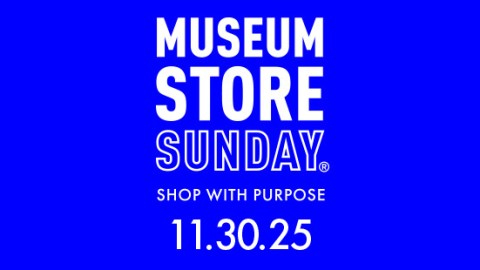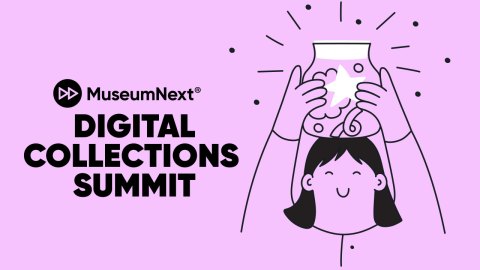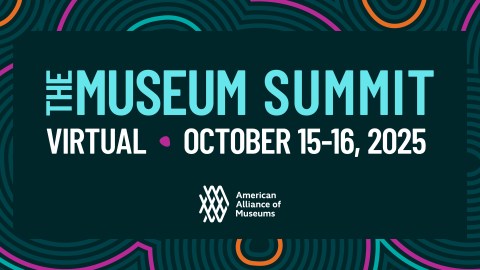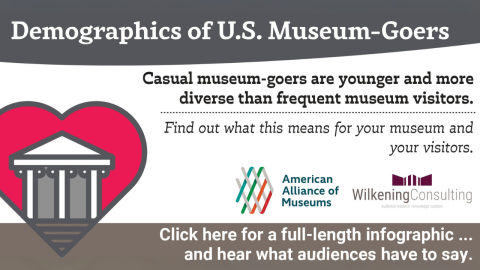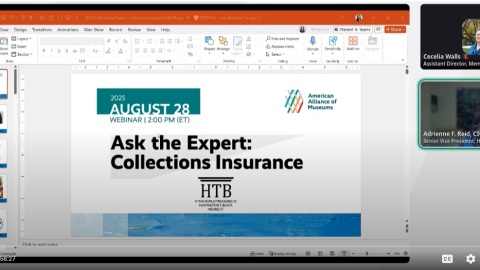During my day job, I help tell stories. On a good day, those stories are compelling and hopefully useful. Probably like many of you, however, many of the stories that I tell during the day are ones that never get told to our visitors. We may tell stories about best business practices or organizational strategies, about the need for a new point of sales system for the museum shop or how more efficient lighting units are necessary in a gallery, or why a copyright policy needs to be updated.
These conversations, these behind-the-scenes stories, are essential to the overall story-telling that museums offer to their visitors. They are the foundation that we build upon. The internal conversations that enable us to sustain an effective business framework are critical to our success. It is these conversations that provide the organizational scaffolding for the creative, transformative experiences we create for our visitors.
As I enter into my second year as AAM’s Professional Network Council Chair, I have observed how each of the twenty-two professional networks creates their own stories to help the museum community. It has been no surprise to me that the accomplishments of the professional networks are remarkable.
These networks are a collective group of hundreds of dedicated, motivated volunteers that are not only passionate about advocating best practices, but also improving how museums connect and serve.
But we are a decentralized team and finding a collective voice for this incredible set of museum advocates is challenging. I remind myself that, just like my day job, there are multiple stories to be told. We are not one voice; we are a chorus of many voices.
So, how do we approach and support so many different stories, so many voices? How do we empower the AAM community so that we make a difference? I believe that there are three core areas that we should continue to focus on that will help.
Processes & Procedures
As expected in large, volunteer-based industries, there is constant change. The professional networks are no different. For example, chairs rotate off or objectives shift based upon membership needs. As a group, it is critical that all the various professional networks have a set of clear, effective guidelines that keep us productive and aligned. This is not an easy task, but it is possible. There are questions such as: Is there funding for onsite conference events? How are webinars scheduled and promoted? Do all the professional networks have similar governance protocols? We are making strides among all the professional networks in setting these standards. Once these processes and procedures are established, they must be effectively communicated among the group.
Internal & External Communications
Over the past year, there has been an increasing amount of information-sharing across the AAM community such as articles (like this one) coming from an email blast or conversations within Museum Junction. Our ability to effectively network among our peers is expanding. Increasing communications among the professional networks is also something that I hope to continue to expand. As we improve our ability to effectively communicate, we enable ourselves to collaborate on what all of us do best, which is creating compelling and engaging content
Creating & Aggregating Content
The professional networks and the multitude of constituents that they represent can best help the museum community by creating content. When I see the success of Museum Junction or the annual MUSE Awards at the conference, I am reminded that good, high-quality content produced by AAM members raises awareness across the museum field. By creating and aggregating strong content, we educate ourselves about how to advocate for museums, preserve our collections, and engage with our diverse constituents.
Over the past year, my conversations with professional network chairs, AAM staff and AAM members have all revolved around how we continue to strengthen our ability to create useful content for the field. We can do this work as individuals. We can tackle it as professional networks. We can approach it as members of the AAM community. By constructing good business practices and embracing useful communication channels, we can strengthen the diversity and depth of our content.
Of course there will continue to be moments when we all need to come together and act and, as the professional network chair, I intend to help with that. If all of us continually work to improve our communications, our procedures, and our content, I’m calling that progress. I’m calling that success.
Jack Ludden is Head of Web and New Media Development at the J. Paul Getty Trust. In his role, Jack helps define and execute the Getty’s digital strategies across a multitude of distribution channels. Before working at The Getty, Jack worked for Disney Online, The Shoah Visual History Foundation and was a founding member of Red Card Studios. He received his BA from Northwestern University and his MFA from the School of the Art Institute of Chicago. Jack is the past Chair of the American Alliance of Museums Media and Technology Professional Network. He is the current Professional Network Council Chair, a position that oversees all twenty-two American Alliance of Museums Professional Networks.

